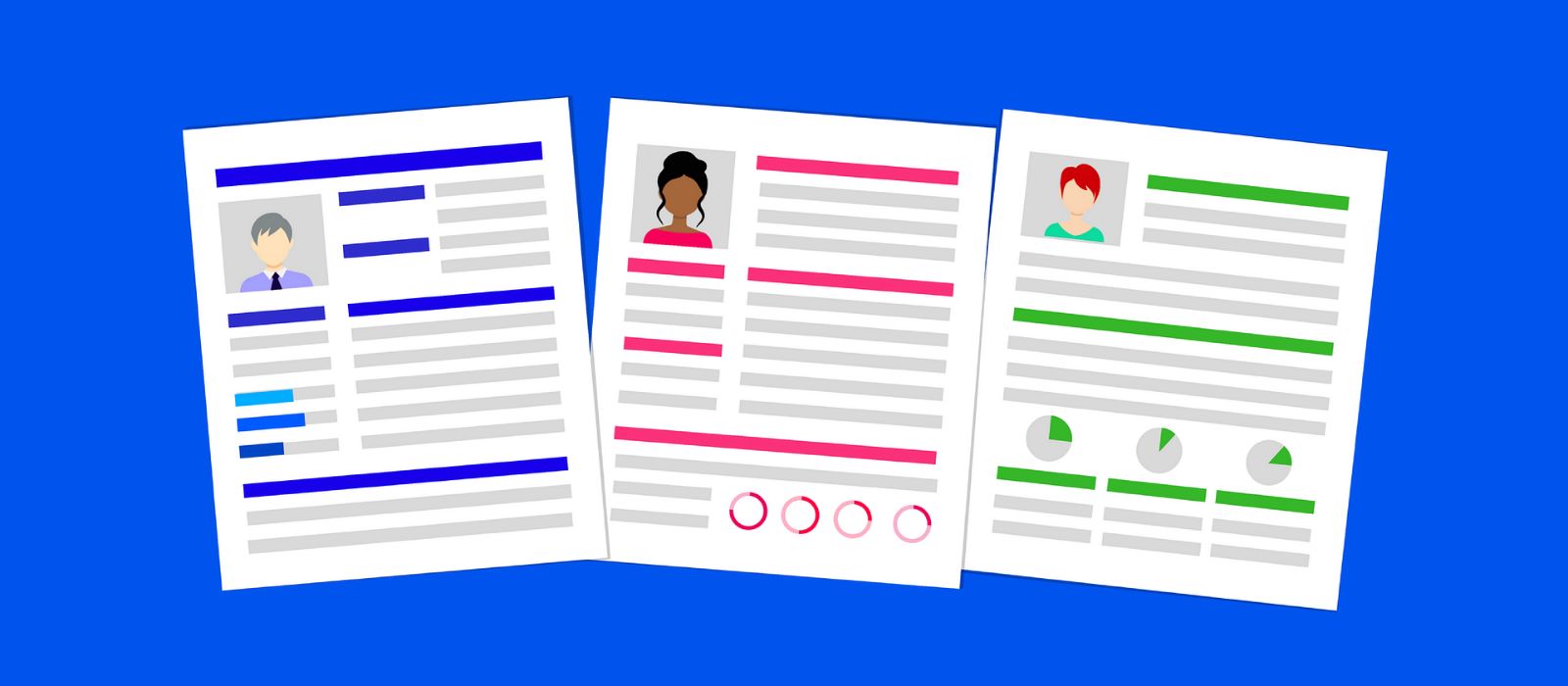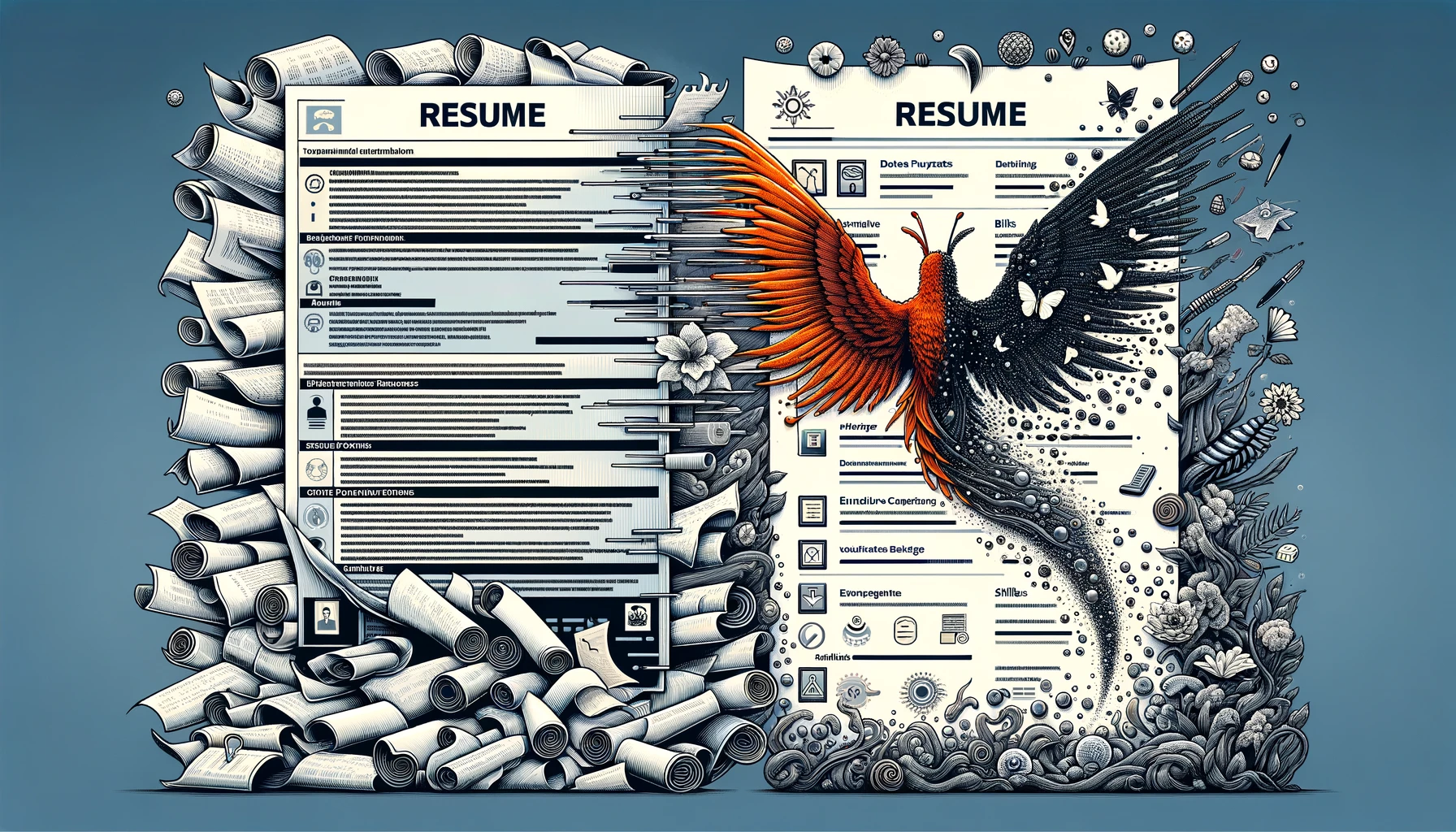Your qualifications, skills, experience, and accomplishments are summarized in a document called a resume, which provides an overview of these areas. It is required when applying for jobs, internships, and scholarships, among other things. Your resume should be comprehended quickly and easily by the reader, and it should be at most two pages (1 page is ideal). To draw attention to your qualifications, you should emphasize the importance of action verbs, use bullet points, and bold language. By doing so, you can utilize a resume format to guarantee that you are using the appropriate structure and language for your application.
You will get knowledge from this tutorial that will assist you in developing an impressive résumé. It will cover the many kinds of resumes, the information that should be included, and how to style your resume correctly.
Why it’s necessary to have a resume
A resume is a document that summarizes your experiences, abilities, and qualities for a potential employer. Because it is frequently the first item that potential employers look at, it is one of the essential tools you have in your job search.
It is essential to have a resume since it provides potential employers with a means of rapidly learning about your qualifications and determining whether or not you would be a suitable fit for the position. In addition, having a well-written CV/Resume helps you differentiate yourself from the other applicants for the job.
A resume can effectively showcase your writing and communication abilities to potential employers. You may demonstrate to prospective employers that you can communicate straightforwardly and effectively if you take the time to develop a well-written CV and submit it with your job application.
What information should be included in your resume
When you sit down to write your resume, there are a few essential things you need to keep in mind before you begin. Your resume ought to be straightforward and to the point. Second, it needs to highlight your successes and the attributes you possess. Last but not least, it must be perfect in terms of both grammar and spelling.
When you compose your resume, the first thing that should be on top is your name and some contact information. The next step is to list your professional experience and educational background in reverse chronological order. Include any abilities that are pertinent to employers, as well as any keywords that will help you stick out to them.
Before sending in your application, you should thoroughly proofread it. Investing some time and effort into crafting an impressive resume will help you gain access to previously inaccessible prospects.
Things that should not be included in a resume
When you are putting together your resume, you should include details highlighting your relevant experience and talents. On the other hand, some things should not be included in your resume at all. The following are some examples of items that should not be included in your resume:
1. You are not required to include any personal information on your resume, including your address, phone number, or email address. If a potential employer needs to contact you, they can find this information easily.
2. Information that is not pertinent If you have yet to spend a significant amount of time working in your field, there’s little point in including your previous jobs. Do not include any information on your application that is irrelevant to the position you are applying for, such as your high school grade point average, date of birth, age, marital status, or any other information. In addition, omit any information regarding your interests, religious affiliations, wage expectations, or references on the resume.
3. Your photograph: A photo of you should not be included on a resume because it may create the idea that you are more interested in your appearance than your qualifications. Including a photo in your application can decrease your chances of receiving an interview because of the image it gives.
4. An “Objective” statement: An “objective” statement is typically a line or two that describes what you intend to accomplish in your professional life.
How to differentiate yourself from others with your resume
It is essential to differentiate yourself from other applicants in a highly competitive job market. Here are some tips:
1. Employ a layout that has an air of professionalism about it. It would be best if you steered clear of employing cutesy images or fonts that aren’t professional.
2. Use precise, concise wording. Do away with any words or phrases that aren’t necessary.
3. Emphasize the talents and expertise that are pertinent to the position. Only include relevant information, such as your grade point average from high school or information about every job you have ever held.
4. Pay close attention to the editing! Check that your application does not contain any grammatical or spelling mistakes.
Adapting your resume to each specific job opportunity
Your CV needs to be able to differentiate itself from the stack of other applications if you want to be considered for a job. Personalizing your CV for each position is one method for accomplishing this goal.
Make sure your CV is tailored to meet each precise job requirement that is listed in the posting. Bring to the forefront the experiences and capabilities that align with what the employer is looking for. Include information about your responsibilities and accomplishments if you have previous job experience relevant to the position.
Don’t make the mistake of trying to include everything on your CV. Only the most pertinent material should be included; irrelevant or out-of-date experiences should be omitted. Maintain brevity and emphasize the qualities that make you the ideal applicant for the position.
If you take the time to tailor your resume to each position you apply for, you will raise your chances of being invited for an interview and, ultimately, of being hired for the position.
Sounding professional on paper
When writing resumes, there are a few essential aspects one needs to remember to come across as a professional on paper. To begin, make sure that you use correct grammar and punctuation throughout the entirety of the page. This includes things such as speaking in complete sentences and avoiding the use of abbreviations wherever it is practicable to do so.
Second, you should make an effort to employ terminology that is as explicit as is humanly possible. This will assist in demonstrating your understanding of the subject and make you appear more believable overall.
Finally, you should avoid utilizing slang or colloquialisms anywhere in the resume because doing so will only help to make you look unprofessional.
Conclusion
When it comes to your resume, you shouldn’t be satisfied with just good enough; instead, you should strive for the best. Making a document with these hints and suggestions will increase your chances of getting the job of your dreams.
You will be able to design a resume that will wow prospective employers if you follow the advice that we have provided. Remember to prioritize the quality of your work over its amount, and always check it for errors before submitting it.
If you use this manual as a guide, you will be well on the way to developing an impressive CV in no time. What exactly are you looking forward to? Get the ball rolling to land the job you’ve always dreamed of.





